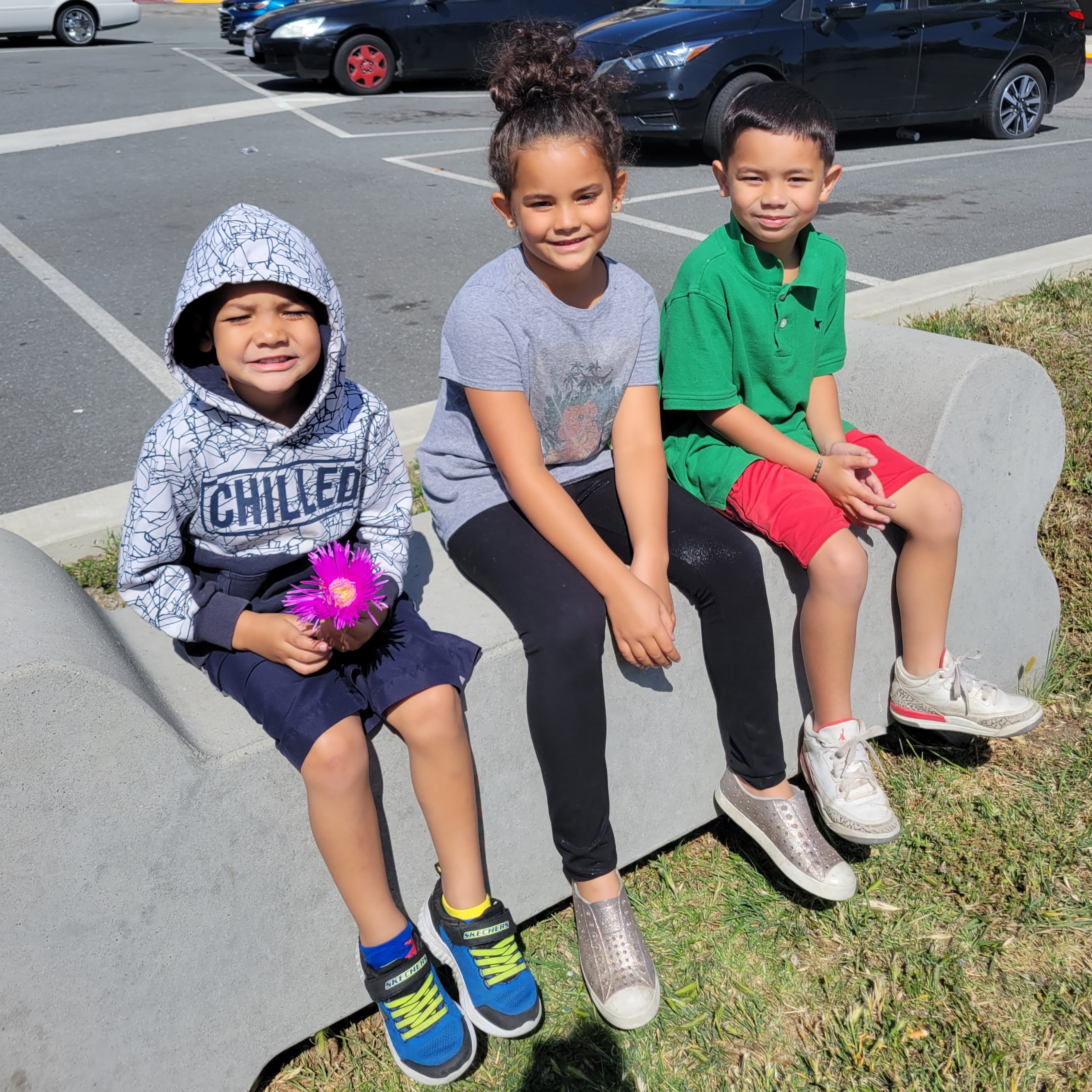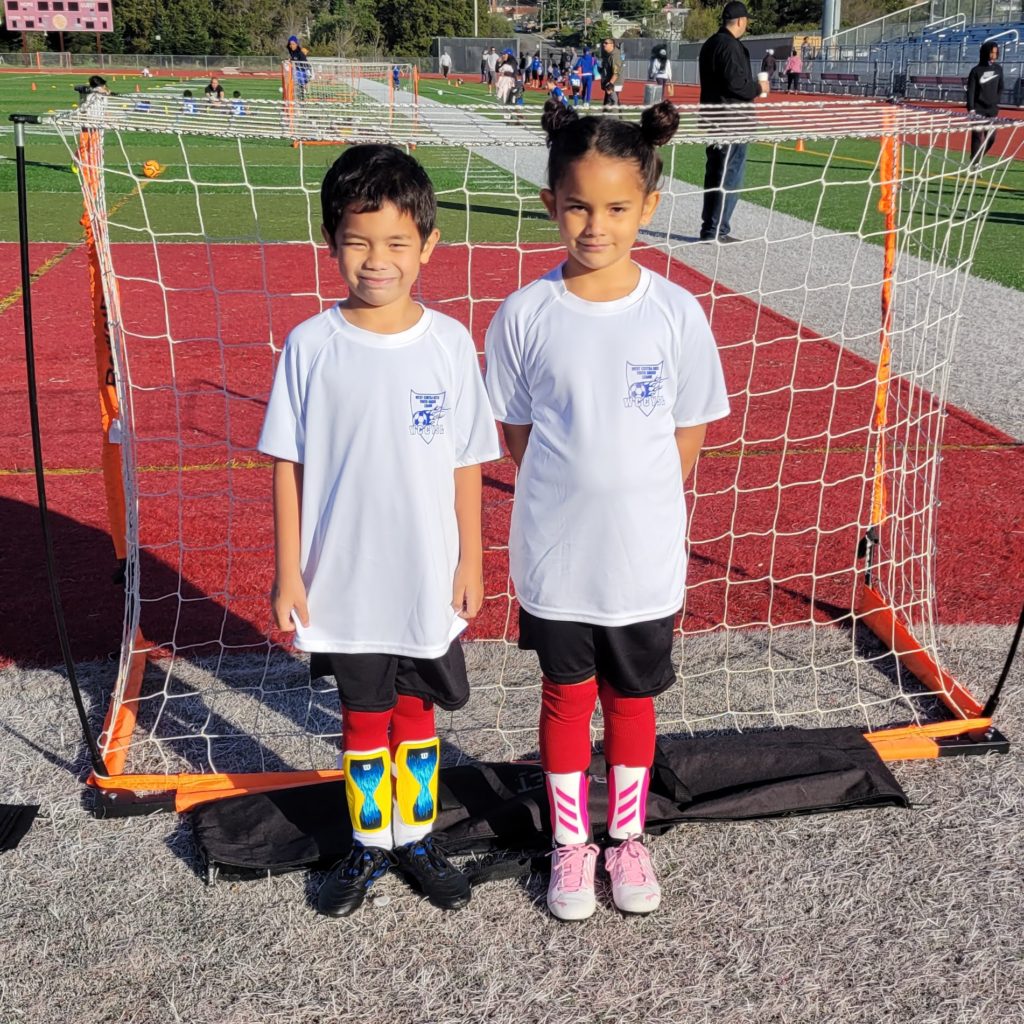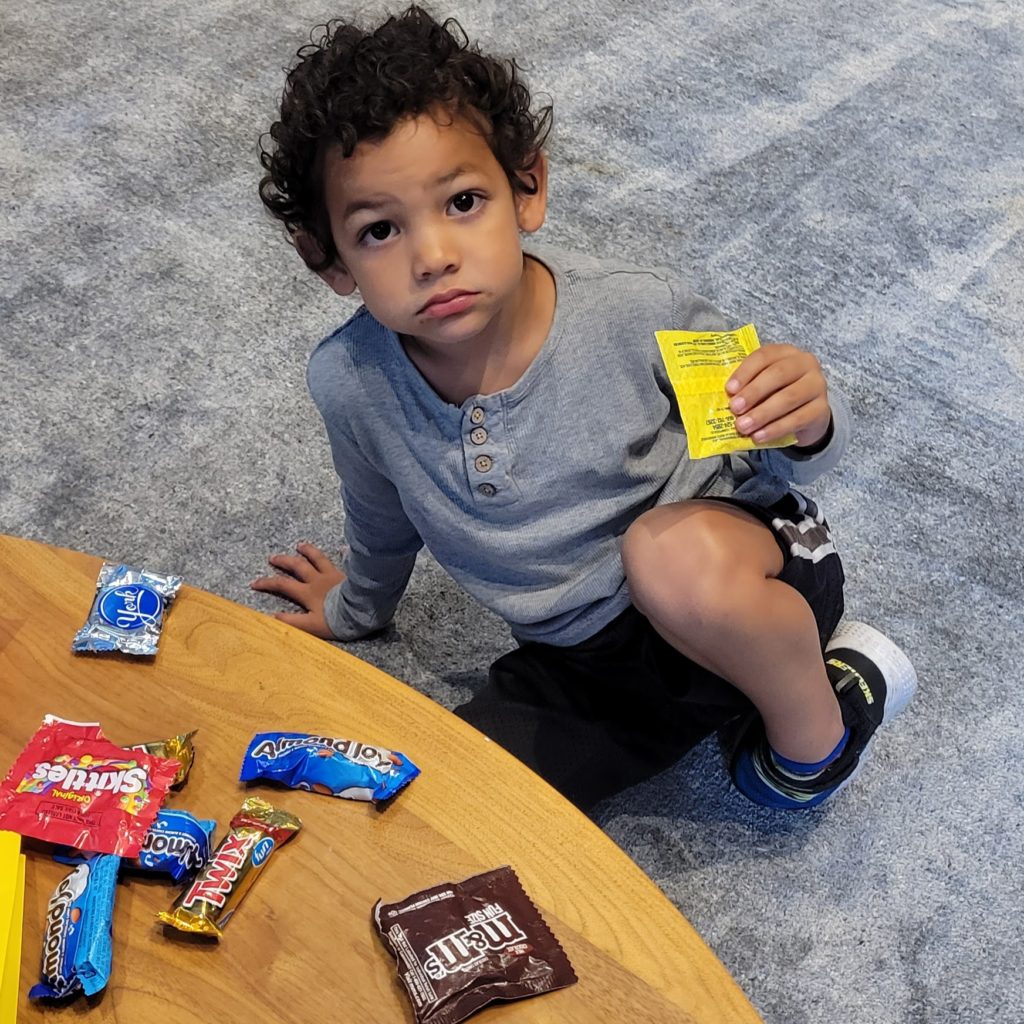Honest truth: I went almost ten years without visiting a dentist even though I worked full time and had dental insurance because my social anxiety was so bad that I was too afraid to call a dentist I had never visited and make an appointment. It was easier to make appointments to go the doctor because I almost always had Kaiser and could make the appointments online, but I never found a dentist who would do that. This is an extreme example of my inability to use my voice, but it’s the clearest one to explain why I make it such a priority to help my children practice using theirs.
Practicing with Peers
From an early age, we taught our kids that if someone is doing something to you that you don’t like, you need to tell them that. When they were toddlers, we used one phrase because toddlers learn best from repetition: “I don’t like that.” We first taught them to use it with their siblings. When one of them took a toy, said something rude, or touched them when they didn’t want to be touched, we repeated each time: Say “I don’t like that.” Small sibling spats were a safe place to begin practicing using their voice. One day when Ana Lia was about 3, a friend of mine was playing with Ana Lia and started tickling her. Ana Lia very clearly said, “I don’t like that.” My friend thanked her for communicating that, and they continued to have fun because Ana Lia was able to use her voice with confidence.
As they got older, we helped them expand their repertoire of explanations so that they can continue to clearly communicate what is happening. If they come to either Afa or I about one of their siblings or their friends, our first question is “Have you talked to that person?” I want my children to know that I will protect them, but they need to be able to speak up for themselves first, before an adult steps in. (There are obvious exceptions to this, but a majority of children’s conflicts are good opportunities to practice.) The following sentences are ones that we practice in our household:
- Stop. I said stop.
- I don’t want to be touched.
- That sound is annoying.
- Please give that back to me.
- It is not okay to hit.

Practicing at the Park
My kids love dogs. I am disinclined to own one, but they have lots of opportunities to be around dogs at our friends’ houses and at the park. The rule about dogs is that you can pet the dogs, but you must ask the owner’s permission first, and if they say no, you do not ask again. I won’t ask permission for them. This gives them an opportunity to practice asking questions of adults they have never met. In most cases, if someone brings a dog to the playground, the dog is friendly, and the owners are happy to let the kids pet the dogs. But I am grateful that there have been times when the owners tell the kids not to pet the dogs. It allows my children to practice using their voice and accepting no as an answer.
The other place that I have recently been tempted to do the talking for Ana Lia is in soccer. The soccer league they played in was a very informal introduction to the game. They didn’t keep score, and parents were volunteer coaches. The team was split onto two small fields with four kids from each team playing on each field so that the kids were able to play more and kick the ball more often. Two or three kids sat between the fields on break, and the coach rotated them through both fields and the break area. Parents stood around the field and got wayward soccer balls as the kids kicked them out. During one game, I was chasing the balls as they went out and could see that Ana Lia was getting tired and probably needed to take a break for a few minutes. The maternal instinct in me wanted to let her coach know that she should be rotated, but this was an excellent opportunity for her to speak up for herself. I told her that if she was tired, she needed to let her coach know. She didn’t immediately, but about 5 minutes later, she ran over to let him know that she needed to sit out.

When It Mattered
These were all low stakes areas that the kids could practice in so that when it really mattered, they would be able to speak up for themselves. In The Brave Learner, Julie Bogart discusses some of the benefits of memorizing facts and passages with your children. One of the items she suggested memorizing was parents’ telephone numbers. It seemed like a good piece of information, even though I remember thinking that we should work on Afa’s number because they are always with me. I could not think of any time that they might use my phone number, but we worked on it anyway because it was good practice. We practiced our address, my phone number, and Afa’s phone number every day for months.
Over Christmas break that year, Afa’s family took the kids to Disneyland. Afa and I stayed back to care for Afa’s dad, and in the early evening I get a phone call from a number I didn’t recognize. As I often do for numbers like that, I ignored it, but I immediately received a second call from the same number. I answered it, and a woman was on the phone and said, “Hi, I am at Disneyland, and I am with Ana Lia. She is safe, but she is on the bench crying and says she is lost.” Obviously, my heart starts pounding as I make a conscious decision not to panic but to figure out how to get Ana Lia back with the rest of the group she was supposed to be with. After multiple rounds of phone tag, this very kind woman stayed with Ana Lia until she was safe. I will be eternally grateful for her, but I was so proud of Ana Lia who kept her voice even during an incredibly stressful situation. She had the presence of mind to talk to the kind woman who sat down beside her and remembered my phone number so that the woman could call me.

In another example of how small, consistent practice makes a big difference, the lessons we taught our kids over several months and years came to fruition when it was most important.